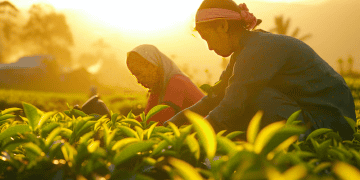Filipino farmers are appealing for government assistance as increased vegetable imports, particularly onions, have led to reduced earnings and financial challenges. In Bongabon, Nueva Ecija—dubbed the Onion Capital of the Philippines—farmers like Marife, who has been cultivating onions for nearly three decades, report significant income declines. Marife notes that during favorable market conditions, she could earn up to ₱1,000 per day; however, recent circumstances have reduced her daily earnings to approximately ₱300. She expressed concern over the diminished harvest this season, stating, “If there’s no harvest, there’s no income. Sometimes, what we have is very little, and it is not enough for us.”
The Philippine government initiated onion importation in the 1990s to stabilize vegetable prices and prevent sharp increases, such as the spike in 2022 when onion prices soared to ₱700 per kilogram. In February 2025, the Department of Agriculture (DA) approved the importation of thousands of metric tons of onions from countries including China, Indonesia, and India. This decision aimed to prevent price surges but coincided with the local harvest season, leading to a supply glut and subsequent price drops. Consequently, farmgate prices for white onions fell to ₱30 to ₱33 per kilogram, significantly lower than the ₱80 to ₱110 range considered profitable by farmers.
Farmers have voiced concerns over the timing of these imports. Geron, a farmer from Barangay Pesa, invested ₱700,000 in a two-hectare onion farm but now anticipates a return of only ₱500,000. He suggests that while importation isn’t inherently problematic, aligning it with the local harvest calendar is crucial to avoid market disruptions. He stated, “There’s nothing wrong with importation, but they should have at least waited until our harvest season was over so it wouldn’t interfere with the traders’ pricing when they buy onions. If there was truly a shortage, they should have imported much earlier.”
The DA has acknowledged these challenges and continues to assist farmers in Central Luzon. Interventions include providing free onion seeds, plastic mulch to reduce post-harvest losses, and equipment such as sprayers and cultivators. Additionally, the DA is aiding in the installation of pheromone traps to combat infestations like the onion armyworm, locally known as “harabas.”
Despite these efforts, farmers continue to seek more comprehensive support and better-aligned importation policies to ensure the sustainability of local agriculture and protect their livelihoods.
Stay informed on supply chain news at The Supply Chain Report. Free international trade tools are at ADAMftd.com.
#FilipinoFarmers #OnionCrisisPH #VegetableImportsPH #SupportLocalAgriculture #FarmersLivelihood















